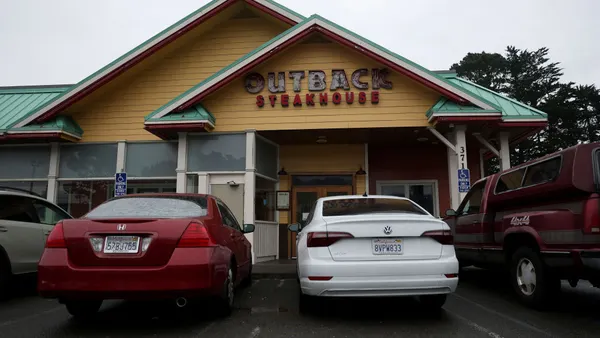Dive Brief:
- Lawmakers in states like New York and California are considering creating their own net neutrality rules, according to Bloomberg. The current rules made by the Federal Communications Commission (FCC) do not permit individual state interpretations, "warning against an unwieldy patchwork of regulations." But critics of the net neutrality repeal believe the FCC does not have the authority to "preempt state laws."
- Major tech companies, including Amazon, Facebook, Google and Netflix, are a part of a lobbying group to legally fight the repeal, reports Recode. In addition, the Internet Association is joining a lawsuit filed by companies, state attorneys general and advocates such as the Free Press as an "intervening party" against the rule change.
- Any lawsuits against FCC chairman, Ajit Pai, must wait until the final copy of the order is published in the Federal Register, according to Recode. The Restoring Internet Freedom Order's final draft was released by the FCC Thursday. The order ends "utility-style regulation of the internet in favor of the market-based policies necessary to preserve the future of internet freedom."
Dive Insight:
There has been no shortage of scrutiny since the initial net neutrality rules came about in 2015. When the FCC set the framework to change the policy, protesters gathered for the Day of Action and millions of others left comments on the FCC website to leave the rules in place.
Public scrutiny has escalated to an all-time high, culminating in Pai being forced to cancel an appearance at the 2018 International CES tradeshow after reportedly receiving death threats.
The 2015 Open Internet Order (OIO) banned ISPs from paid prioritization, content blocking and traffic manipulation based on source or content. While advocates of the OIO often frame the issue as one of freedom of speech, many of those in favor of the repeal argue it impeded on investment and innovation.
While ISPs including Comcast and AT&T say they will continue to honor basic net neutrality, it is well known both companies were opposed to the 2015 regulations.
States are not sitting idly by. A bill was introduced in New York that would require ISPs to maintain the Obama-era net neutrality regulations in order to receive state contracts, reports Bloomberg. The impacts of this particular bill are intended to reach outside of the state of New York, which could invite legal trouble.
And states as large as California hold a gravitas in federal decisions that smaller states simply don't have. For example, many vendors are reliant on California, and D.C. politicians are reliant on those vendors.
If the enough areas of the U.S. were to collectively implement similar laws that essentially work around the FCC's repeal of net neutrality, the fight could end up back in Washington, though an overhaul of the new rules is unlikely until a change in the party in power














